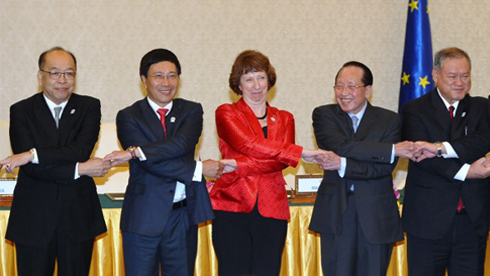“Europe Has a Democratic Deficit”
No, but it has a legitimacy problem. Skeptics have claimed for years that Europe has a “democratic deficit” because the European Commission, which runs the EU, is unelected or because the European Parliament has insufficient powers. But European Commission members are appointed by directly elected national governments, and European Parliament members are elected directly by voters. In general, EU-level decisions are made jointly by democratically elected national governments and the European Parliament. Compared with other states or even an ideal democracy, the EU has more checks and balances and requires bigger majorities to pass legislation. The European Union is plenty democratic.
The eurozone does, however, have a more fundamental legitimacy problem due to the way it was constructed. Although decisions are made by democratically elected leaders, the EU is a fundamentally technocratic project based on the “Monnet method,” named for French diplomat Jean Monnet, one of the founding fathers of an integrated Europe. This incremental strategy -- first a coal and steel community, then a single market, and finally a single currency -- took ever more areas out of the political sphere. But the more successful this project became, the more it restricted the powers of national governments and the more it fueled a populist backlash.
To solve the current crisis, member states and EU institutions are now taking new areas of economic policymaking out of the political sphere. Led by Germany, eurozone countries have signed up to a “fiscal compact” that commits them to austerity indefinitely. There is a real danger that this approach will lead to democracy without real choices: citizens will be able to change governments but not policies. So yes, European politics have a legitimacy problem; the solution is more likely to come from policy change rather than, say, giving yet more power to the European Parliament. Never mind what the skeptics say -- it already has plenty.
Read 1st part











